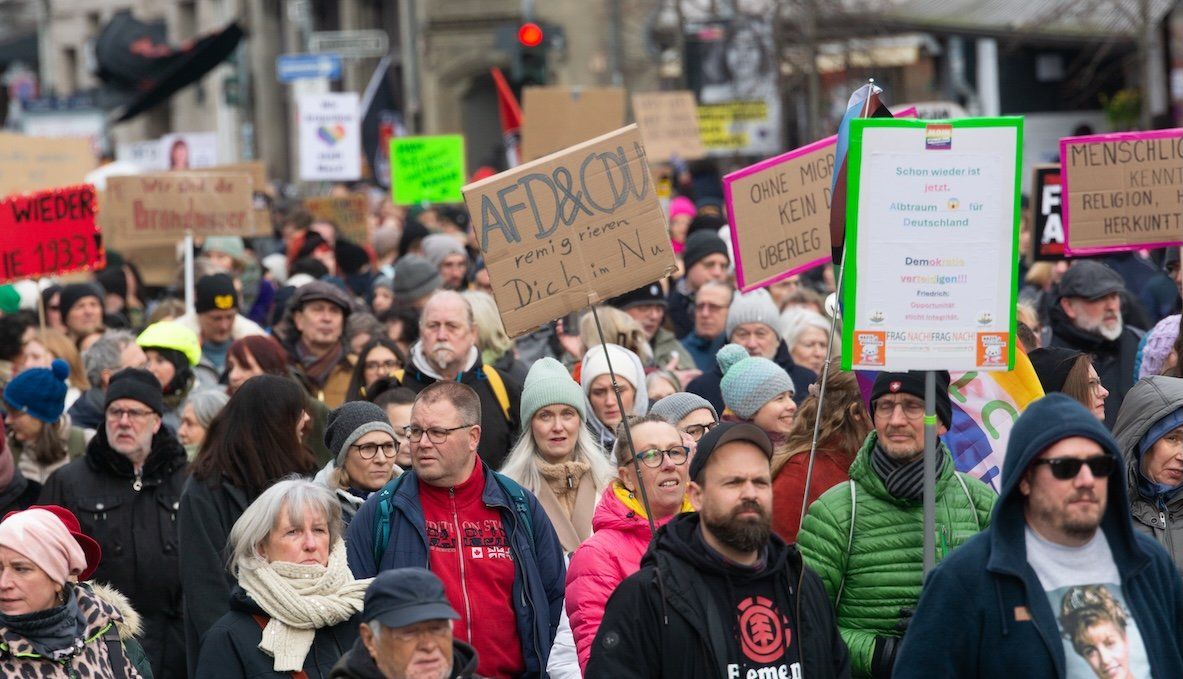Amid a deep economic crisis and renewed migration concerns, the far-right party Alternative for Germany, or AfD, is poised to double its vote share in this weekend’s general elections. As a series of random attacks by Middle Eastern or Afghan migrants have increased the appeal of the party’s harsh anti-migration stance, its gains have caught the eye of officials in US President Donald Trump’s administration. In highly unusual interventions, presidential adviser Elon Musk has urged Germans to “move past” the guilt associated with World War II and vote for the extremist AfD, while Vice President JD Vance criticized the refusal of mainstream political leaders to work with the party.
Eurasia Group expert Jan Techau says the AfD has no path to government at present, but its increasing strength is transforming German politics. We sat down with him to learn more.
What are the main issues in these elections?
Two issues stand out. The first is the economy. With terms like “de-industrialization” being bandied around, this is no cyclical adjustment but a profound economic crisis caused by a decline in productivity, high energy prices, and high taxation. Every single party has acknowledged this, even the ones that don’t typically run on economic platforms. The second is migration, which had faded into the background a little, but has been revived in the last couple of months by a series of horrific incidents. In the last one, a rejected Afghan asylum seeker, who, for whatever reason still had a residence permit, drove a car into a crowd.
The war in Ukraine also preoccupies voters, but to a lesser extent at present. The issue is expected to gain prominence during the government formation talks after the elections, especially given US President Donald Trump’s recent outreach to Russia’s Vladimir Putin to start ceasefire talks.
What has been the impact of Vance’s and Musk’s interventions in favor of the AfD?
The AfD’s strong polling is mainly the result of the recent attacks that have stoked concerns over uncontrolled migration, not these interventions by external players. Still, their comments help the AfD by normalizing it and giving it more visibility and air time. Vance’s speech at the Munich Security Conference sent a clear signal to the foreign policy establishment assembled there: The new US government seeks friendship with far-right nationalists in Europe and considers them its real allies. This has not yet translated into better polling for the AfD but has clearly strengthened its confidence.
How do you expect the AfD to perform in the elections?
The party appears on track to win 21% or 22% of the vote, doubling its share from the last elections and finishing second behind the center-right Christian Democrats, or CDU, which is polling at about 30%. The AfD won’t be able to enter government given the aversion of mainstream parties to working with it, but it will lead the opposition, allowing it to partially set the agenda from the political fringes. The AfD’s strategy will be to adopt an obstructionist stance to make the government look bad and improve the party’s position even further ahead of the 2029 elections.
The CDU recently took a risk by accepting AdF support for a proposed bill of harsh migration measures, which was rejected by parliament. Does that mean the gambit failed?
I think it's too early to make a final judgment on whether this move was strategically successful. The aim was to create more space for centrist parties to advance stricter migration policies without being accused of pandering to the far right. What we can say is that the move has not affected the CDU’s comfortable lead in the polls despite the harsh criticism received from other mainstream parties. So, we’ll see if the next government, which the CDU is expected to lead, can advance stricter migration policies. It's interesting to note that the Christian Democrats are one of the few center-right parties that remain competitive in Europe. In most other countries they have been eclipsed by formations advocating more radical policies on migration. CDU leader Friedrich Merz is trying to avoid this fate.
So, do you expect the CDU to rule in coalition with other parties, and if so, what does that mean for governance?
Yes, we expect the CDU to form a coalition with the Social Democrats and, if necessary, another party as well. Single-party majorities or minority governments are very uncommon in the German system. Of course, coalition means compromise, which could lead to an indecisive reform agenda that is not sufficient to address the issues we see at the moment. But maybe this time will be different and the mainstream parties can rise to the occasion. They know that the AfD is waiting in the wings and eager to capitalize on any governmental dysfunction in the 2029 elections.
When will we get some indication about the cohesion and strength of the next government?
The post-election coalition talks that will start shortly after the elections will give us an idea about what the next government wants to do and what – beyond the parties’ campaign rhetoric – is really possible. The war in Ukraine will also start to have an impact at this point, as the new government will have to contemplate the policy implications of Trump’s push to broker a cease-fire and get European countries to assume more responsibility for Ukraine’s security. The German mindset is very domestically focused, and the government will very likely be faced early on with requests to shoulder a massive new military exposure.
Edited by Jonathan House, senior editor at Eurasia Group.
